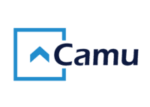
Breaking Down the Core Skills for Future Leaders
Are you a fresh graduate looking to enter the workforce; a professional seeking to explore new career opportunities; an employee attempting to adapt to a senior role, perhaps? Yes. Maybe. Not even close.
It doesn’t matter. Listen up.
Irrespective of the stage (of the corporate ladder) you find yourself in, it is never too late to acquire skills, the right kind of skills, the optimum set of skills. Because one day, in the near future, you will be in a position of authority. A team leader, a project supervisor, a business executive. And all professionals occupying leadership roles will need to possess strong leadership skills. After all, you can’t build a successful business without having the right talent or the right person to steer that talent, can you?
This blog is dedicated to helping learners, be it students or working individuals, prepare for a hyper-competitive and dynamic working environment, by breaking down the skills and attributes they need to succeed.
Ask yourselves this, “what do we need to do now to set ourselves and our teams up for success?”
Skills On-Demand
Research will tell you that there is no single way to define good leadership or great leadership, for that matter. While some depend upon their unique instincts and flair, others go strictly by the books. Democratic. Autocratic. Laissez-faire…there are diverse leadership styles out there. A simple google search will generate list-after-list of what entails strong governance – a combination of hard (technical) and soft (human) skills.
The question arises, which attributes should one pay heed to?
Bear in mind, not all distinguished leaders possess the same leadership skills, as these are strongly connected to an individual’s personality and communication abilities. In short, different people equal to different leadership skills. What ultimately matters, is the ability of the leader to create a sense of purpose for the organisation, set achievable business goals, inspire employees towards delivering results, drive sustainable change, and foster a healthy working environment.
Apart from the ones that we’re all too familiar with (interpersonal and communication skills), here are 15 of the most desirable attributes to hone, today!
- Leadership Vision – The actions, beliefs, values and goals that determine what kind of a leader one is, and what he/she hopes to accomplish.
- Learning Agility – The ability and willingness to learn from experience, and apply that learning to perform successfully in new situations.
- Strategic Thinking – An intentional and rational thinking that focuses on the analysis of critical factors.
- Systems Thinking – A holistic approach to analysis that focuses on how a system’s constituent parts interrelate.
- Lateral Thinking – A method of solving problems using an indirect and creative approach.
- Active Listening – A technique of listening and responding to another person, that improves mutual understanding.
- Project Planning – A discipline that entails finishing a project within a certain timeframe, usually with defined stages and designated resources.
- Business Storytelling – A content discipline that leverages well-crafted narratives in a diverse range of content types.
- Time Management – The process of planning and organising how to divide your time between specific tasks.
- Assessment – The process of evaluating an individual’s ability to perform a specific skill or set of skills.
- Flexibility – The ability to modify a style or approach to leadership in response to uncertain or unpredictable circumstances.
- Inclusivity – The willingness to accept, respect and be sensitive towards diverse backgrounds, contexts and situations.
- Positivity– The tendency to be optimistic and well spirited in attitude and action.
- Reliability – The quality of being dependable and trustworthy.
- Empathy – The capacity to understand or feel what another person is experiencing from within their frame of reference.
Now, you may have some or all of the qualities listed above. But it is important to recognize which areas require further building, further improvement, or change. Upskilling is always a good idea. And as Camu reiterates, there is scope to keep growing. Remember, striking that balance between Intellectual Quotient and Emotional Intelligence is key. While being successful is the ultimate endeavor, it’s vital that you don’t lose sight of what is important – connection, collaboration, and change for the better.
Leaders Never Leave the Digital Campus
Good leaders understand that, regardless of their years of experience, they need to constantly update their skills for the evolving world. Now, you may possess some or all of the qualities listed above, but it is crucial to recognize which areas require further building, improvement, or change. Upskilling is always a good idea, and one effective way to achieve this is through micro-credentials offered by EdTech platforms.
Micro-credentials are compact certifications that showcase proficiency, expertise, and experience in a specific subject area or skill set. They are increasingly recognized as valuable tools for professional development, particularly for leaders seeking to upskill in specific areas. The appeal of micro-credentials is rooted in their adaptable nature. Leaders can choose from a vast array of subjects, such as “Leadership in the Age of AI,” study at their own pace, and apply their learning directly to their work.
This approach aligns perfectly with the concept of ‘lifelong learning,’ a philosophy that encourages continuous education as a fundamental part of both personal and professional life.
Remember, in the world of digital leadership, learning never stops. So, why should you? Embrace the digital campus and start your lifelong learning journey today.







